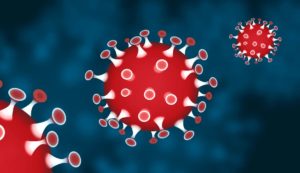It has been well documented that patients infected with the Covid-19 virus have an increased level of oxidative stress. Oxidative stress is a condition in which there is an imbalance between the amount of oxidants and antioxidants in the body. When there is too much oxidative stress, it can cause damage to cells and tissues. In a new study, researchers found that Covid-19 patients have severely increased levels of oxidative stress and oxidant damage, as well as glutathione deficiency.
What is Covid-19?
Covid-19 is a novel coronavirus that was first identified in 2019. The virus is similar to other coronaviruses, such as SARS-CoV and MERS-CoV, but it is more closely related to SARS-CoV-2, the virus that causes the common cold. Covid-19 is thought to cause a range of respiratory illnesses, including bronchitis, pneumonia, and even meningitis. The virus is spread through contact with respiratory secretions, such as saliva, mucus, or blood. It can also be spread through contact with contaminated surfaces, such as doorknobs, door handles, or countertops. People who are infected with Covid-19 may experience a range of symptoms, including fever, cough, and shortness of breath. In severe cases, the virus can lead to death.
The new study found that Covid-19 patients have significantly higher levels of oxidative stress than healthy individuals. Oxidative stress is a condition in which there is an imbalance between the amount of oxidants and antioxidants in the body. When there is too much oxidative stress, it can cause damage to cells and tissues. The researchers found that Covid-19 patients have elevated levels of reactive oxygen species (ROS), which are molecules that can damage cells and DNA. The patients also had increased levels of oxidized lipids, proteins, and DNA. In addition, the patients had decreased levels of glutathione, an important antioxidant that helps protect cells from damage.
The findings suggest that oxidative stress and glutathione deficiency may play a role in the severity of Covid-19 infection. The researchers believe that antioxidants, such as vitamin C and glutathione, may help to protect cells from damage and improve outcomes in patients with Covid-19.
Increased oxidative stress!
Oxidative stress is a condition created by an imbalance between the production of reactive oxygen species (ROS) and the body’s ability to detoxify them. ROS are unstable molecules that can damage cells, leading to inflammation and disease. When the body is unable to detoxify ROS effectively, oxidative stress can occur. There are many factors that can contribute to increased oxidative stress, including poor diet, pollution, and exposure to toxins. chronic stress can also lead to higher levels of ROS. The good news is that there are several things you can do to help reduce oxidative stress, including eating a healthy diet, getting regular exercise, take antioxidant supplements, and managing stress effectively. By taking steps to reduce oxidative stress, you can improve your overall health and reduce your risk of disease.
Glutathione is a small protein that is important for many cell functions. It acts as an antioxidant, helping to protect cells from damage caused by free radicals. Glutathione also helps to detoxify the body, binding to harmful chemicals and making them more water soluble so that they can be excreted in urine. Additionally, glutathione plays a role in regulating gene expression and cell proliferation. Finally, glutathione is involved in maintaining the structure of proteins, DNA and other cellular components. Because of its many functions, glutathione is essential for good health. levels of glutathione are often lower in people with chronic illnesses such as cancer, AIDS and heart disease. Supplementing with glutathione or NAC may help to boost glutathione levels in the blood.
NAC and mucus?
N-acetylcysteine (NAC) is a mucolytic and antioxidant supplement that has a range of potential clinical applications. It is the acetylated form of L-cysteine, and works by helping to break down mucus in the body. NAC also has sulfur content, which helps to give it its mucolytic properties. In addition to its use as a mucolytic, NAC has also shown potential as an antioxidant. It is thought to work by scavenging free radicals, and may also help to boost levels of glutathione, another important antioxidant. Although more research is needed, NAC shows promise as a treatment for a variety of conditions, including bronchitis, COPD, and cystic fibrosis.
As the world continues to grapple with the Covid-19 pandemic, it is important to understand the different ways that the virus can affect our health. One area of research that is still in its early stages is the role of oxidative stress in Covid-19 patients.
There are many factors that can contribute to increased levels of oxidative stress, including poor diet, pollution, and exposure to toxins. Chronic stress can also lead to higher levels of ROS. The good news is that there are several things you can do to help reduce oxidative stress, including eating a healthy diet, getting regular exercise, taking antioxidant supplements, and managing stress effectively. By taking steps to reduce oxidative stress, you can improve your overall health and reduce your risk of disease.

N-acetyl cysteine (NAC) is a derivative of the amino acid cysteine. It is used as a supplement to increase levels of glutathione, which is a key component of the body’s antioxidant defenses. Glutathione is composed of three amino acids: cysteine, glycine, and glutamic acid. NAC provides the cysteine necessary for glutathione synthesis. Once inside the cell, NAC is converted into glutathione by the enzyme glutathione synthetase. This committed and irreversible step is the rate-limiting step in glutathione synthesis. The resultant increase in glutathione levels provides protection against oxidative stress and renders cells more resistant to damage from toxins and inflammation.
Reference:
Hirsch, et al. “Covid-19 Patients Have Severely Increased Levels of Oxidative Stress and Glutathione Deficiency.” Cell Reports Medicine, vol. 100002, 2020. DOI:org/101038/s41467-020-19950-w. Accessed 14 May 2020.
ncbi.nlm.nih.gov/pmc/articles/PMC7141874/. Accessed 14 May 2020.



Leave a Reply